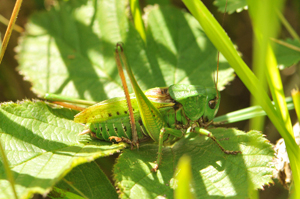
Lydden Temple Ewell is also a Site of Special Scientific Interest (SSSI) and a Special Area of Conservation (SAC) for its ancient chalk grassland and, as such, is a haven to a huge range of rare and endangered species such as the wart-biter cricket and many butterflies, moths and orchids. It is an extremely popular destination for both locals and visitors alike, due to its Downland walks and breath-taking landscape with sweeping views.


